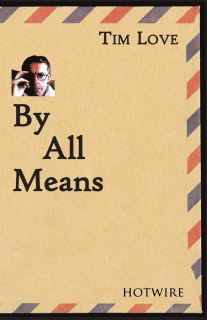 In The Poet Tasters Ben Etherington studies a year of poetry reviews in Australia, going beyond the raw stats (though he quotes those too) by reading all 247 of the eligible reviews from 2013. I imagine many of his conclusions would apply to the UK situation. He points out that poetry reviewers (unlike film and novel reviewers) are thought of as practitioners writing criticism on the side (they are, but they should be respected as reviewers). He noted a uniformity of structure in the reviews he read -
In The Poet Tasters Ben Etherington studies a year of poetry reviews in Australia, going beyond the raw stats (though he quotes those too) by reading all 247 of the eligible reviews from 2013. I imagine many of his conclusions would apply to the UK situation. He points out that poetry reviewers (unlike film and novel reviewers) are thought of as practitioners writing criticism on the side (they are, but they should be respected as reviewers). He noted a uniformity of structure in the reviews he read -
More often than not, reviews follow this formula:
1. Introduce the volume, the poet and their previous publications.
2. Describe the poet’s overall aesthetic with reference to European and / or North American antecedents.
3. Quote approvingly from two or three choice poems with some technical commentary.
4. Express reservations about one or two poems.
5. Affirm, nevertheless, the worthiness of the volume as a whole.
He also notes that it's typical to "criticise some unnamed poets in opposition to those of whom you approve".
Readers expect certain things (not least a judgement) from reviews but I don't think that excuses formulaic writing. A template I often see is a review that begins with an observation about poetry, then shows how it relates to the book in question. My pile of magazines-to-read has examples. Here are 3 starts -
- When you are young, and full of verse, there seem so many subjects for poems: the self, the other, the leaf on the pavement, the scent of the mock orange: all present themselves as thrilling and new. And when you are old, for many poets, the world fills again with the urgency of imminent loss, and you enter another phase of intense creativity. But in between there is middle age: the era of responsibility, and consistency, and matrimony, and parenting, and imminent not much - Kate Clancy, The Poetry Review, V103:4, p.104
- In 2004, Dr James Kaufman of California State University published his study into the varying lifespans of writers of the nineteenth and twentieth centuries. Along with statistical evidence suggesting that the business of poetry contrived to bump off poets at an average age of sixty-two (four years earlier than novelists), Kaufman concluded that "Poets produce twice as much of their lifetime output in their twenties as novelists do". While novelists of the late modern period were shown to improve through a good long stewing, poets of the same era tended to flash fry, then overcook themselves - Jack Underwood, The Poetry Review, V103:4, p.125
- Do writers describe places, or create them in their work? Perhaps that question should be can writers describe real places, or must they write them into existence? - Matt Ward, New Walk 10
I don't mind this template unless it's over-used in an issue. I do dislike: opinions that could be backed up by stats but aren't; pseudo-scientific critical vocabulary; and descriptions that are so poetic that I don't know what the reviewer means.
Etherington points out that "No one believes that most Australian poetry volumes are a couple of edits or a tempered excess away from being a perfect version of themselves, but this is what, en masse, the reviews tell us. ...
The obvious and probably accurate conclusion is that few poets writing about fellow poets in a smallish scene will want to offend, and fewer will want to harm their own careers and networks". I suspect that the UK situation is similar. I try to moderate my comments so that I rate as average the books halfway down my ordered list! This, I realise, is rarely done in poetry (films much more often get 1 star out of 5).
He notes also that "More remarkable is the general lack of references to other Australian poets, both past and present". I don't notice this anti-local tendency as much here, though younger poets cite US poets as influences and yardsticks more often than they used to.
Producing a UK version of Etherington's article would take a while. Maybe some Masters student might try it. Maybe they already have.
p.s. Etherington praises a review by Bonny Cassidy.
 In
In  My story collection "By All Means" (ISBN 978-0-9570984-9-7), published by Nine Arches Press, is on sale from
My story collection "By All Means" (ISBN 978-0-9570984-9-7), published by Nine Arches Press, is on sale from  My poetry pamphlet "Moving Parts" (ISBN 978-1-905939-59-6) is out now, on sale at the
My poetry pamphlet "Moving Parts" (ISBN 978-1-905939-59-6) is out now, on sale at the 